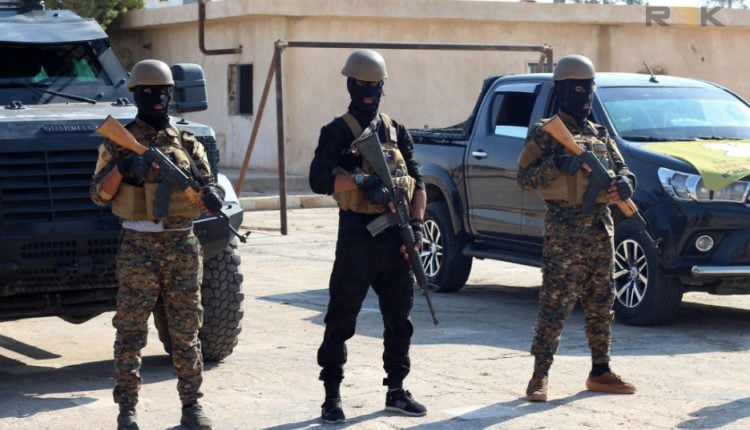Syria’s Defense Minister Murhaf Abu Qasra and SDF leader Mazloum Abdi announced Tuesday that they have reached a “comprehensive ceasefire,” to go into effect immediately. This followed heavy fighting Monday in the eastern part of the Aleppo Governorate.
The fighting was in and around the town of Deir Hafar, Syria’s Defense Ministry reported one of their soldiers killed and three wounded, along with an unknown number of wounded civilians. The SDF reported at least seven of their fighters were wounded by Monday evening, but have yet to update that figure since.
Both sides accused the other of starting the fight, with the military saying the SDF attacked them unprovoked and the SDF claiming they only fired once the military started advancing on them with tanks. Both sides also accused the other of attacking civilians in Deir Hafar.

SDF troops patrol Deir Hafar | Image from SOHR
Part of the tensions appears to be that the government closed key roads in Deir Hafar, and set up checkpoints, which have reportedly prevented civilians from traversing through the town at all.
State-run media accused the SDF of attacking those checkpoints, though the SDF denied this was the case, and insisted they’d actually left Deir Hafar months ago. Whatever the case, the fighting was in and around the town, so some civilian casualties are presumed, though exact numbers are unclear.
The SDF is meant to integrate into the military under the March 10 agreement, though the exact timetable and process of such a move is uncertain. The Kurds are increasingly pushing for a measure of autonomy in their territory, and having been all but shut out of the national government, a “one state, one army” Syria no longer holds much appeal for them.
The ruling Hayat Tahrir al-Sham (HTS), by contrast, has insisted there needs to be a hugely strong central government, and they seemingly want one that will be heavily under their direct control. There have even been suggestions they could invade the Kurdish regions outright to forcibly integrate them.
The US has been increasingly friendly with HTS strongman Ahmed al-Sharaa, and they have faulted the Kurds for “stalling” on integration, insisting that the HTS agreement to integrate with the Kurds was an expression of generosity, and that any regional autonomy just wouldn’t work.
Though this ceasefire stops the fighting for now, there is nothing to suggest it resolves any of the ongoing disagreements about integration of Kurdish territory or the SDF, and tensions are likely to remain for some time.


